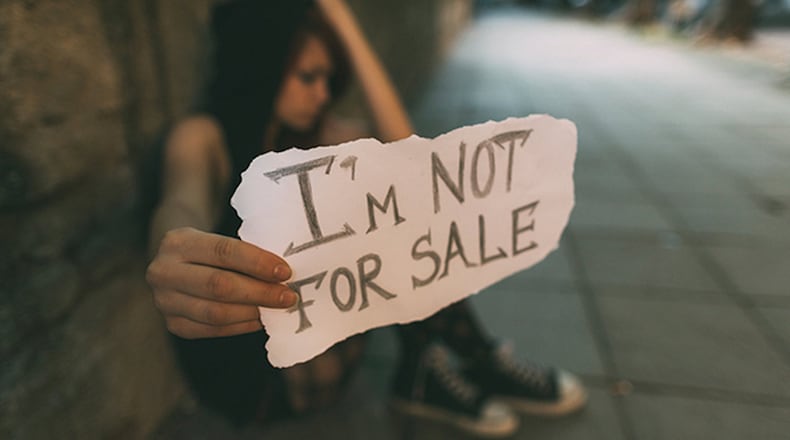Three years ago, a Gwinnett County cop rescued a young woman from an alleged sex trafficker at a hotel outside Norcross. The man had instructed her to perform sex acts for money and threatened to hurt her family if she left, she told the cop, leading to the man's arrest, according to a police report.
Knowing that the young woman had worked as a prostitute, the officer had a choice: charge her with prostitution or let her go. He decided to give her phone numbers for Georgia Cares and Street Grace Ministries, organizations that help victims of sex trafficking, and she “lit up” with relief.
But victims’ advocates say authorities throughout the state of Georgia sometimes choose to charge the victims of sex trafficking with prostitution – even minors. This, the advocates say, further victimizes the victims, thrusting them into court systems that treat them as criminals and leave them with lasting criminal records that can haunt their lives.
» RELATED: FBI: 169 sex trafficking arrests in advance of Super Bowl
» RELATED: Georgia lawmakers prepare sex trafficking crackdown
To address the situation, state Rep. Chuck Efstration, R-Dacula, has filed House Bill 234, which unanimously passed the House on Monday and now must clear the Senate. It would prohibit police and prosecutors from charging anyone under 18 with prostitution.
Credit: Jason Getz
Credit: Jason Getz
The wide-ranging bill, which has enjoyed support from Gov. Brian Kemp’s chosen advocates in the Legislature, would clarify the power of the state Division of Family and Children Services to take minor sex trafficking victims into custody. The measure would also compel police or DFCS to direct the child victims to an organization that can provide “comprehensive trauma-informed services” to provide healing and support.
As with sex trafficking generally, statistics are hard to come by on how often police charge minor victims with prostitution. Advocates and officials are sometimes at odds over how widespread sex trafficking is in the Atlanta area and whether or not the city has truly earned its reputation as a hotbed for the illicit business.
Efstration, who’s worked on several anti-trafficking bills, said he decided to push this one after hearing of several instances where officers charged minor victims. He said he understands why some police might find the arrests helpful: it’s a way of getting the child off the street and giving them access to help through the court system.
But the lawmaker said the process can be damaging.
“It’s putting the child in a confinement location and subjecting the child to treatment consistent with someone who’s broken the law,” Efstration told The Atlanta Journal-Constitution. “That can be harmful psychologically for the child.”
Heather Stockdale, CEO of Atlanta-based Georgia Cares, said she’s seen the harm firsthand with the victims her organization has helped.
"What often happens is that they are charged and even if the charge is dropped, they have to later disclose that arrest on job applications, college applications, etc.," Stockdale told The AJC. "If they are prosecuted, then they have a conviction."
A conviction has problems that can go along with it, such as trouble finding work and being viewed differently than peers who have no criminal record.
Other provisions in the bill would make it so an owner of an establishment, such as a hotel, can be cited for running a “nuisance” property if the local district attorney notifies them of three or more sexually-related crimes, in which there have been indictments, taking place on the grounds within a year.
The Georgia Hotel & Lodging Association wants some “tweaks” in the bill to make sure there are no unintended consequences, said the organization’s executive director, Jim Sprouse. He didn’t want to go into detail about how he’d like the bill changed exactly because the agency has been in talks with Efstration.
About the Author
Keep Reading
The Latest
Featured




